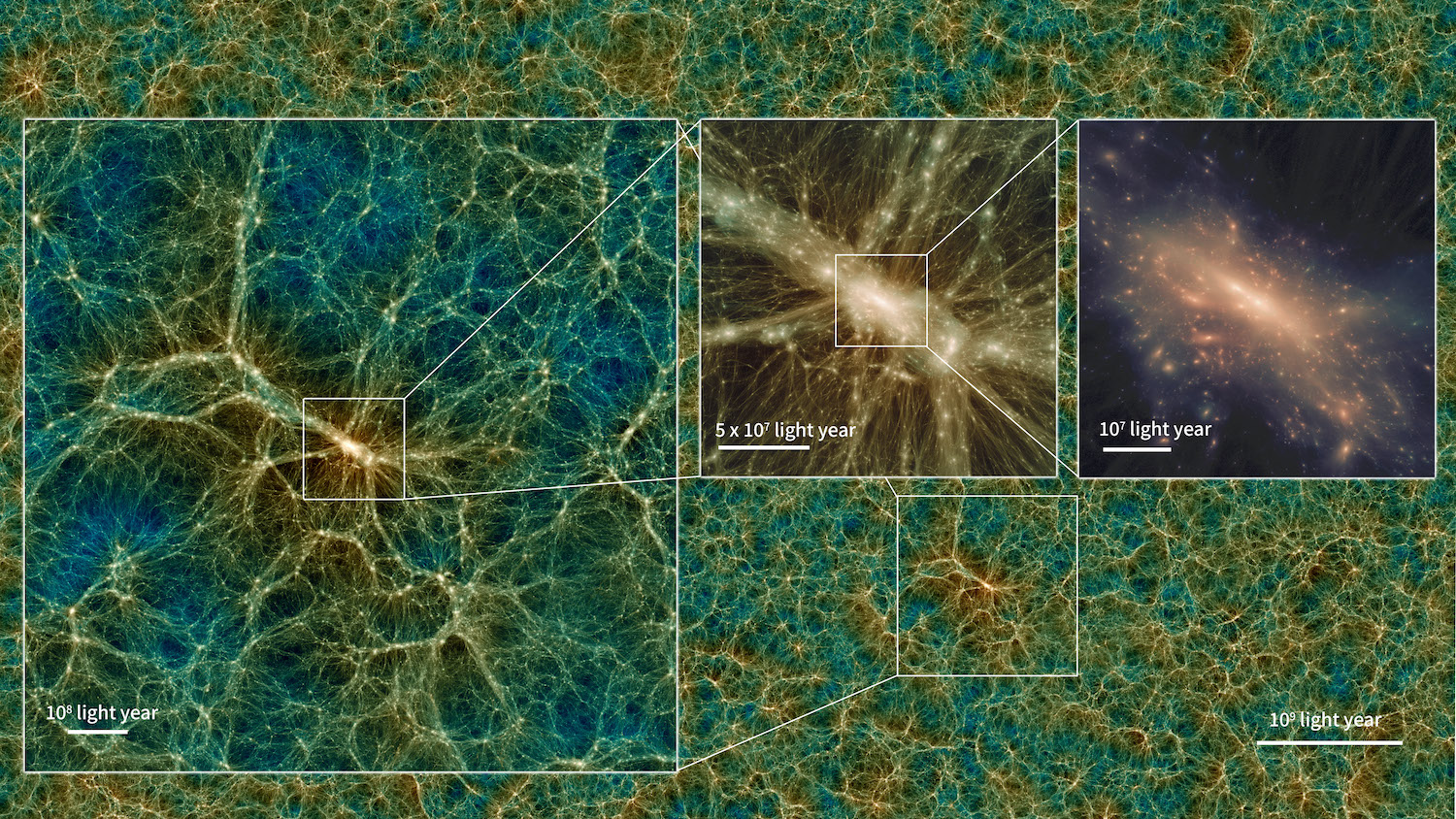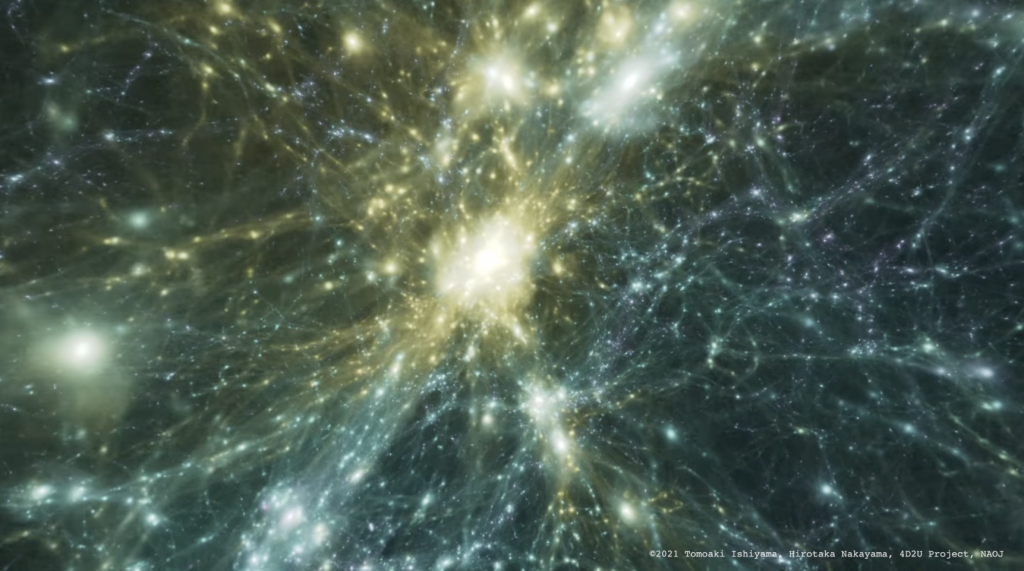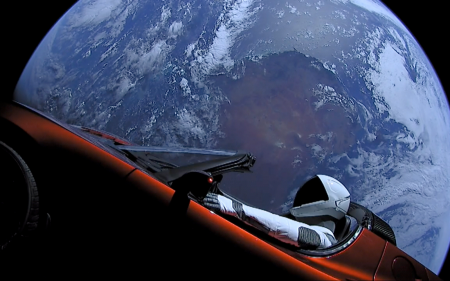The universe is a large place. So large that we can’t see all the way to the other side of it (yet). The solution? A simulated universe, of course. That’s just what scientists from around the world have created: Uchuu (which is Japanese for ‘outer space’), an artificial universe that you could totally download — if you had enough storage space available.
Making a simulated universe

Uchuu is a 2.1 trillion particle simulation that is 9.83 billion light-years from side to side, created using a dedicated astronomy supercomputer called ATERUI II. Even using a supercomputer, the simulation took years to create. Tomoaki Ishiyama, the Chiba University professor who wrote the code for the simulation, explains that it required “…all 40,200 processors (CPU cores) available exclusively for 48 hours each month. Twenty million supercomputer hours were consumed, and 3 Petabytes of data were generated, the equivalent of 894,784,853 pictures from a 12-megapixel cell phone.”
That’s… a whole lot of data, but that’s what you need to produce when you create a simulated universe. Uchuu, according to Julia F. Ereza, a PhD student at IAA-CSIC, “…is like a time machine: we can go forward, backward and stop in time, we can ”zoom in” on a single galaxy or ”zoom out” to visualize a whole cluster, we can see what is really happening at every instant and in every place of the Universe from its earliest days to the present, being an essential tool to study the Cosmos.”
And yes, it’s freely available. Downloading everything, which is totally a possibility, is also hugely impractical unless you’re rocking more than 100 TB of storage (and if you are, we’ve got… questions), since the researchers involved were able to compress it from 3 petabytes down to that size. Thankfully, you can also access the simulated universe via cloud, which is a little more manageable for everyone. You can find out how to access it via the Uchuu simulation website or the project’s GitHub page, but you’ll likely need some serious science skills yourself before you start poking around roughly 13 billion years’ worth of universal expansion.




